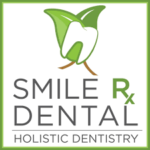When you feel pain in your tooth you usually expect something to be wrong with your tooth. Quite often though tooth pain can be a result of pressure from the sinuses.
If you are having a bad cold or a sinus infection, or even if you just have narrow nasal passages in general, the pain may be coming from that. The buildup of mucous in the nasal passages presses on all of the muscle and tissue surrounding it resulting in pressure and pain on your upper teeth, the teeth closest to the sinuses.
If you feel any tooth pain it’s always best to consult with a dentist, but if you have a cold or sinus infection, it’s best to let the dentist know this relevant piece of information so that they can help you make the best choices for your care. Sinus and tooth connection underscores the importance of consulting holistic healers who evaluate the person as a whole and do not just treat individual symptoms.
So Is It Sinus Or Tooth Pain?
Spring is on its way–that beautiful time of year when everything is in bloom. But for allergy sufferers, spring may forecast a season of struggle and discomfort. Spring allergens can cause nasal inflammation and lead to sinus infections.
What does all of this have to do with your teeth? Plenty. On top of everything else a sinus infection brings, it can also cause tooth pain. How do you know if the pain you’re feeling is from a sinus infection or a tooth that needs attention? Read on to find out.
Learn About Sinusitis and Why it Can Cause a Toothache
Sinusitis refers to inflammation in the sinuses, which are air-filled passages that connect to the inside area of the nose. Most cases of sinusitis are a result of an upper respiratory infection, the common cold or influenza. As mentioned above, your nasal passages can also become inflamed as a result of allergies and obstructions to fluid flow inside them. The inflammation from these allergens can cause pain from the increase of pressure in the obstructed, swollen sinuses.
There are several sinus passages, including the maxillary sinus, which lies behind your cheekbones. The roots of your top back teeth lie in close proximity to the maxillary sinus. When fluid accumulates here it can put pressure on the nerves that enter the roots of these teeth. The pain associated from this pressure can make you feel like you have a toothache. Tooth pain related to a sinus infection isn’t actually tooth pain; it comes from all that pressure building up inside the head, but it is difficult for the brain to distinguish what kind of pain it senses.
Check Your Symptoms
Pain in the upper teeth is a fairly common symptom with sinus conditions. If you’re unsure whether the tooth pain you’re experiencing is due to an abscess or a sinus infection, one thing you can do is check your symptoms. The symptoms of an abscess include:
- Pain
- Swelling
- Redness in the gums
- Bad taste in the mouth
- Fever
According to Health.com, some symptoms of sinusitis are:
- Blocked or runny nose
- Discharge down your throat
- Cough and sore throat
- Fever
- Throbbing pain or ‘heaviness’ behind the cheekbones
- Headache
- Earache
- Increased pain when nodding your head up and down
A sinus-related toothache typically generates pain on both sides of the face. Also try pushing down on your tooth. If it doesn’t cause you immediate, intense discomfort, it’s more likely referred pain from pressure in your head.
Check Your History
If you have a history of experiencing toothaches with sinus infections in the past, this may help with the diagnosis. If you’re prone to seasonal sinus infections, it may be helpful to start a personal health journal of your symptoms so you and your doctors can better determine the proper care and treatment.
See Your Dentist
Regardless of the cause of your pain, the discomfort indicates something isn’t right. Your tooth pain may be unrelated to your sinus infection, which is why you should first make an appointment with your dentist if the pain persists. When you visit Smile rx dental , we can check your teeth to determine if they’re . If several upper back teeth are tender when Dr. khan taps them, this can point to sinusitis as the cause of pain. We may also take x-rays to help rule out dental disease as the source of the problem. If there’s any doubt about what’s causing the pain, Dr. Khan may give you medication to treat sinusitis. If she rules out a dental cause for the toothache, then it’s time to consult your doctor. He or she will consider whether a sinus condition or other underlying medical problem is contributing to the toothache.
Call for a Consultation
If you or a loved one is currently experiencing tooth pain, call for a consultation. We’re always available to talk with you and address your concerns. Please feel free to contact us at our office phone number: 301-249-1571

